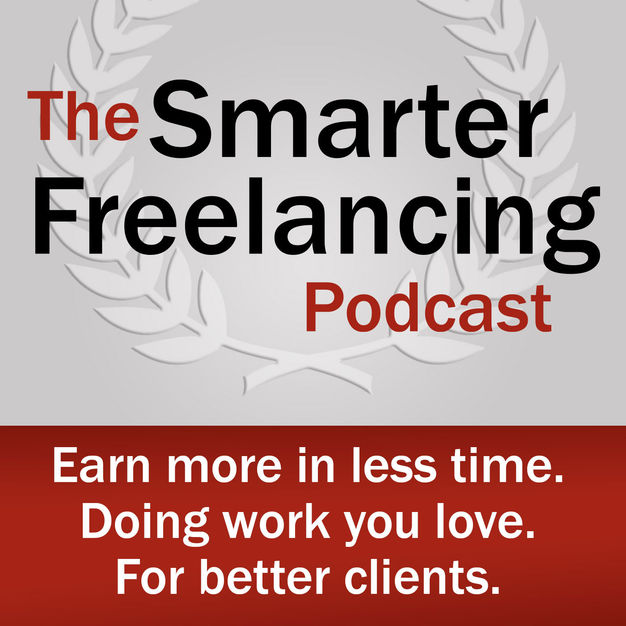
Smarter Freelancing: Freelance Work | Getting Clients | Freelance Writing | Freelance Design | Ed Gandia
Ed Gandia: Freelance Copywriter, Solopreneur, Business Strategist, Coach
Smarter Freelancing is the show that teaches you how to earn more in less time ... doing work you love ... for better clients. It doesn't matter if you're just now thinking about going out on your own, if you've been freelancing for a long while, or if you're somewhere in the middle. This podcast will help you create a freelance business that gives you the time and financial freedom to live your purpose.
- 35 minutes 5 seconds#033: How to Adapt Your Freelance Business to a Rapidly Shifting Marketplace
The freelance marketplace has become more competitive.
But just because there are more freelancers than ever before doesn't mean you have to succumb to competitive pressure. Not if you make key adjustments in how you position yourself ... and what services (and value) you deliver.
In this week's show you'll hear from someone who's done this successfully. His name is Tristan Kneschke and his company is Exit Editorial, a post-production company that does video editing and color grading services.
Tristan specializes fashion and beauty and has worked with brands such as Victoria’s Secret, Bath and Body Works, Google, Pepsi, Nike, Amazon and Colgate.
In this interview, you'll hear why Tristan made critical changes to his business with the economic downturn. And you'll discover how he made these shifts and why they've paid off.
28 May 2015, 7:00 am - 39 minutes 22 seconds#032: How to Have a Stress-Free Conversation with Your Prospects
For many of us, the initial conversation with a prospect can be stressful.
Maybe you need the work. Or you really want to land this client. And you don't want to screw up the opportunity by saying the wrong thing.
In this episode, you'll hear from RC Peck, a seasoned pro at having productive and highly effective prospect conversations.
RC is not a freelancer. But I've brought him into the show because we can all learn from the mindset and techniques he's developed about these initial prospect conversations.
You'll discover how to better manage these conversations. How to ask for (and get) quality referrals. How to frame your pricing so that you land the client at higher fee levels. And how to vet prospects faster so you waste little time with poor-fit prospects and set yourself up for success with high-quality opportunities.
14 May 2015, 7:00 am - 44 minutes 38 seconds#031: Booking Yourself Solid
Michael Port's Book Yourself Solid was one of the most important books I read when I was freelancing part time while working my day job.
It was a big reason why I was able to grow my business so quickly.
I loved how Michael broke down the process of filling up your pipeline with high-quality clients. He described the process in a very methodical way that I could understand. But he also addressed the critical "softer" side of building a solo business.
In this interview, I get to chat with Michael for the first time. It was fun to finally have a conversation with someone who shaped my thinking at this critical juncture of my business.
But I was also a bit nervous — especially early in the conversation — until I finally got my footing.
I guess I was a bit star-struck! :)
This episode is NOT a step-by-step training class on how to book yourself solid. But I hope it gives you a handful of ideas for making positive changes in your business.
30 April 2015, 7:00 am - 51 minutes 58 seconds#030: How to Get a 10X Return on Your Next Conference
I've always been a big proponent of investing in targeted conferences and events.
It's not just about what you learn, it's about the people you meet, the conversations you have and the insights you gain.
In other words, the intangible things no one can really put a price on.
However, I'm the first to admit that I don't always get the most value from the conferences I attend.
Why? Mainly because of poor planning on my part. And many times I just don't know what I'm supposed to do! (Sound familiar?)
In this interview, my good friend Coach Jenn Lee shares some super-practical tips and ideas we can all use to get a 10X (or better!) return on the conferences and events we attend.
16 April 2015, 7:00 am - 34 minutes 21 seconds#029: David Nihill on Using Humor to Become a Better Public Speaker
Delivering talks to very targeted groups can be a great way to generate new freelance business. Especially if used in conjunction with other smart marketing strategies.
But to captivate your audience and keep them engaged, you have to be an effective speaker.
Fortunately, this is a learnable skill. Just ask David Nihill, who until recently was petrified of speaking in public. Then he took a deep dive into the subject and studied some of the most skilled communicators in any field — stand-up comics.
In this episode, David explains what you need to do to become a more effective and engaging speaker. And he shares some interesting ideas on product creation and developing a platform, for those of you who are thinking about creating an online course or writing a book some day.
2 April 2015, 7:00 am - 31 minutes 4 seconds#028: How Focus@Will Improves Focus, Productivity and Creativity
Music has been a big part of my life since I was a kid. But for years I had the hardest time finding music that enabled me to focus on my work.
I spent hours carefully curating playlists on iTunes. I tried dozens of Pandora stations. And, of course, I tried the old standby — classical music.
Nothing ever worked consistently.
And then in 2013 I discovered Focus@Will, an online service that plays music that's scientifically designed to improve and sustain your focus.
After an hour of sampling their free trial, I was hooked. And I've been a loyal customer since then.
I don't normally do shows about paid products or services. But I'm such a believer in this service that I felt compelled to share it with you.
And to explain what its, why it works and what's behind the technology, I've brought on Will Henshall, Focus@Will's Founder and CEO, to the show.
19 March 2015, 7:00 am - 35 minutes 12 seconds#027: Value Pricing with Kirk Bowman
You don't hear much about value pricing (often called "value-based pricing") in the freelance community—at least not in the creative side of freelancing.
But it's catching on with freelancers who are trying to shift to a more consultative approach to their services.
I've been meaning to bring up this topic...
But I wanted to bring in a guest who could speak to this from real-world experience—not from theory.
I finally found the guy. His name is Kirk Bowman.
Kirk has worked as an entrepreneur since graduating from college. One of his businesses is Mighty Data—a software development company serving small and medium size businesses.
He also recently started Art of Value, a start up consulting firm that helps businesses switch to value pricing.
In this episode, Kirk explains what value pricing is all about, whom it's for, how you can use it to grow your business, and how you can deploy it, even if you start small.
5 March 2015, 8:00 am - 37 minutes 4 seconds#026: A Hiring Manager Explains What He Looks for in a Freelancer
We spend a lot of time on this show talking about how find and land better-paying clients, how to work smarter and how to develop the mindset you need to succeed in this business.
You've heard from me and from fellow freelancers. You've heard from industry experts, well-known speakers and authors.
But I've yet to bring on someone who hires freelancers. Someone who can speak to what it's like evaluating freelance talent and working with us.
That's what this episode is about. In today's show, you'll hear from Craig Chappelow from the Center for Creative Leadership (CCL), a non-profit leadership and training organization headquartered in the U.S.
Craig has hired—and continually works with—dozens of freelancers in multiple disciplines. And in this candid interview, you'll get his perspective as a client on what it's like to find, hire and fire solo professionals.
19 February 2015, 8:00 am - 44 minutes 37 seconds#025: Brian Casel on 'Productizing' Your Services
Made to order.
That's what most of us do. We deliver customized services to our clients.
It's simple and straightforward — at least on paper. The client describes what they need, and you turn around and deliver a customized, made-to-order product.
This model works. It's what most clients want. And when done right, it can be very profitable.
But is that the only way to deliver professional services?
No. There are other models that can be just as profitable ... and even more scalable.
And in today's interview, you'll hear from Brian Casel—a web designer who has transformed his freelance business from a service-based firm to one that offers "productized" services.
You'll learn how he's done this, why it works ... and how it could work for you, too!
5 February 2015, 8:00 am - 36 minutes 52 seconds#024: Why So Many Women Struggle in Business — and What to Do About It
I remember when one of my female colleagues first told me about the struggles many self-employed women face. It was about 10 years ago.
"Yes, there's discrimination," she said. "But much of it is self-sabotage. We just weren't brought up like men. We're not supposed to be driven and assertive."
I was shocked.
Yet the more I talked with other women freelancers and entrepreneurs, the more I realized that this is a huge issue.
We've addressed this issue before here at the Academy. In fact, Dianna Huff's detailed post a few years ago is one of the most shared articles on our website.
But in this week's episode my pal Coach Jenn Lee shares a few more insights on the issue — along with a few great ideas for breaking out of this cycle.
22 January 2015, 8:00 am - 51 minutes 57 seconds#023: The State of Independence in America — What’s Happening in Today’s Freelance Economy
Is freelancing a growing trend or a fad?
And if it's growing, who's really profiting from this massive shift in the labor force?
If you've followed me for a while, you probably know that I'm a big "trend junkie." I even put together two comprehensive reports on the state of freelancing, back in 2011 and 2012.
But I've never come close to the information and insights that MBO Partners has produced over the past few years, mainly through their State of Independence reports.
Ever since having MBO Partner's Gene Zaino on the show to discuss the new emerging models of freelance/client engagement, I've been meaning to have a separate discussion with him about the freelance economy — and specifically what his firm has uncovered via these comprehensive studies.
In this interview, Gene and I discuss the biggest findings from the 2014 report, including who's doing well, what they're doing to thrive, how freelancers impact the economy, and what's ahead in the world of independent work.
8 January 2015, 8:00 am - More Episodes? Get the App
Your feedback is valuable to us. Should you encounter any bugs, glitches, lack of functionality or other problems, please email us on [email protected] or join Moon.FM Telegram Group where you can talk directly to the dev team who are happy to answer any queries.
 Freelance Writing Success
Freelance Writing Success
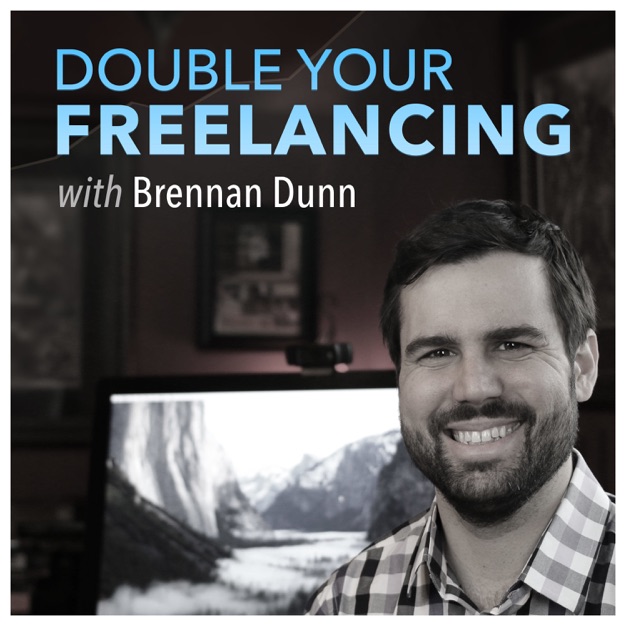 Double Your Freelancing Podcast
Double Your Freelancing Podcast
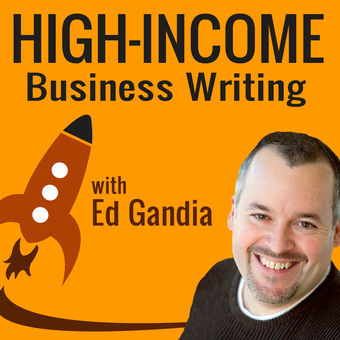 High-Income Business Writing: Freelance Writing | Copywriting | Content Writing | How to Freelance
High-Income Business Writing: Freelance Writing | Copywriting | Content Writing | How to Freelance
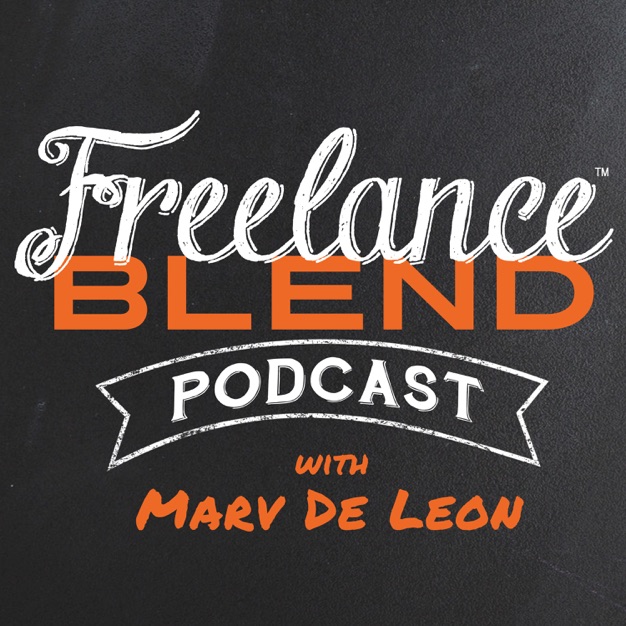 Freelance Blend Podcast
Freelance Blend Podcast
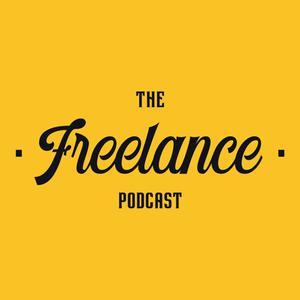 The Freelance Podcast
The Freelance Podcast
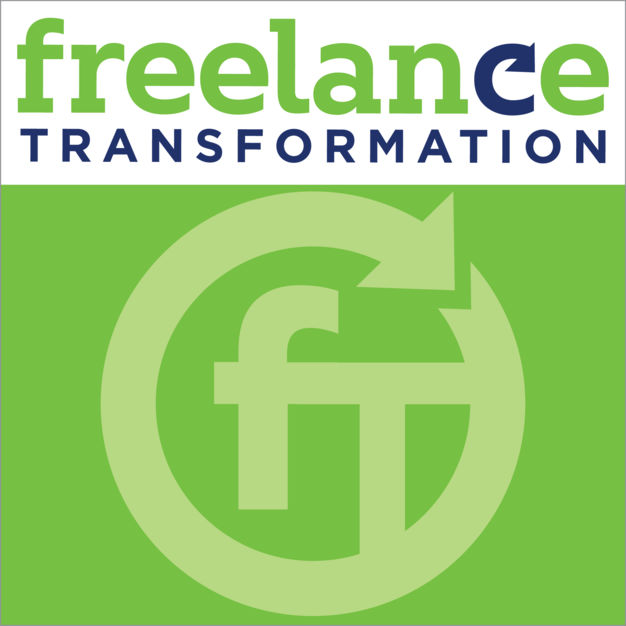 Freelance Transformation
Freelance Transformation